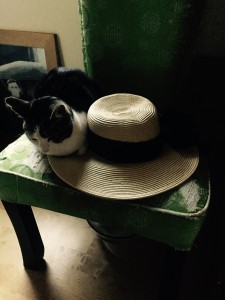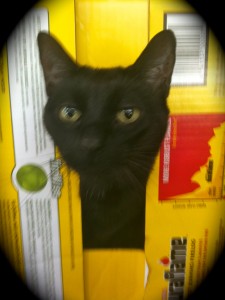 We had the first session of the advanced workshop last night. I’m delighted by the mix, and expecting wonderful things from the class. Some are published already, some are just breaking in.
We had the first session of the advanced workshop last night. I’m delighted by the mix, and expecting wonderful things from the class. Some are published already, some are just breaking in.
Unlike the Writing Fantasy and Science Fiction Stories class, we are not focusing on one of the basics each week, like characters, plot, or world building. Instead, I am trying to let the class drive itself where it can. My hope is that everyone, by the end of class, has not just been critiqued a couple of times, but has a better sense of their writerly process and how to make it more efficient, more confidence in finishing stuff and getting it sent out, and new ways of moving story from idea to finished draft.
So here is the assignment I gave them, in the hope that it will prove useful for other writers trying to figure out their process:
- I asked them each to make an account at the Submissions Grinder, even if they already were tracking their stories in another way. I said I would like them to send out at least one submission and track it in the grinder, but if they couldn’t manage that, then I wanted them to identify at least one market that they wanted to send something to. We spent some time looking at my old submissions spreadsheet, since the question came up, after how many rejections do you trunk story? My answer is that you don’t trunk a story unless you would find it embarrassing to be published. I have some stories that were out over a dozen places before finally finding a home.
- We did an in class writing exercise to make them think about their writing process. I want to them to try varying their process three times over the course of the next week. They can vary their process spatially, by changing the location where they write: outside under a tree or in a coffee shop or at the library or in their closet. Or they can vary it temporally by writing at a different time than they usually do. Or they can vary it according to process: using pen and paper instead of the keyboard, for one, or by writing with outline if they don’t usually use one. Or they can even look at their work and see if there is a pattern they want to vary, such as always writing in past tense.
- Finally, they were assigned to read this and come in prepared to talk about how the writer creates emotion in the reader. That’s a piece that I personally cannot read without crying, so I think it will prove an interesting discussion, and hopefully provide some guidance for creating depth of emotion in their own work.
Enjoy this writing advice and want more content like it? Check out the classes Cat gives via the Rambo Academy for Wayward Writers, which offers both on-demand and live online writing classes for fantasy and science fiction writers from Cat and other authors, including Ann Leckie, Seanan McGuire, Fran Wilde and other talents! All classes include three free slots.
Prefer to opt for weekly interaction, advice, opportunities to ask questions, and access to the Chez Rambo Discord community and critique group? Check out Cat’s Patreon. Or sample her writing here.










One Response
Good stuff.